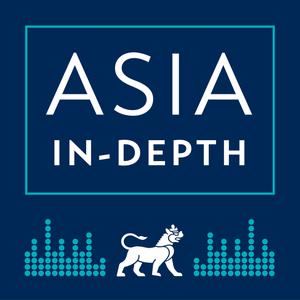
Asia In-Depth
Asia Society
There's never been a better time to understand what's going on in Asia. That's why we talk to the people who know it best. The Asia In-Depth podcast brings you conversations with the world's leading experts and thought-leaders on the politics, economics, and culture of Asia — and beyond. Subscribe today.
- 46 minutes 5 secondsThe State of China, with Qing Wang, Zichen Wang, and Adam Tooze
China is undergoing unprecedented changes domestically, while also dealing with the challenges of a volatile world. Listen to Qing Wang, host of the popular Chinese-language podcast The Weirdo; Zichen Wang, Research Fellow at the Center for China and Globalization; and Adam Tooze, economic historian and professor at Columbia University discuss the state of China.
The discussion is moderated by Finbarr Birmingham, Europe correspondent for the South China Morning Post, and was recorded at STATE OF ASIA, the flagship conference hosted by Asia Society Switzerland last November, in Zurich.This episode is from Asia Society Switzerland's STATE OF ASIA podcast, bringing you exclusive, engaging conversations with leading minds on issues that shape Asia and affect us all. More info and other episodes: https://asiasociety.org/switzerland/podcast-state-asia.
14 January 2025, 2:00 am - 24 minutes 19 secondsThe State of the World, with Kyung-wha Kang and Adam Tooze
We're kicking off the year with two great minds discussing the State of the World as Asia's global importance continues to grow, Europe seems somewhat lost, and the U.S. is preparing for the return of Donald Trump to the White House.
Listen to Asia Society President & CEO Kyung-wha Kang and economic historian Adam Tooze, professor at Columbia University in New York. Their conversation was recorded at STATE OF ASIA, the flagship conference hosted by Asia Society Switzerland last November, in Zurich.
This episode is from Asia Society Switzerland's STATE OF ASIA podcast, bringing you exclusive, engaging conversations with leading minds on issues that shape Asia and affect us all. More info and other episodes: https://asiasociety.org/switzerland/podcast-state-asia.7 January 2025, 4:00 am - 56 minutes 4 secondsAge of Vice, with Deepti Kapoor
Deepti Kapoor's Age of Vice, published in 2023, is a story of power, corruption, and complicity, set in modern India. In the early 2000s, the lives of Ajay, Neda, and Sunny – the novel's three main characters – cross in New Delhi. There is idealism, optimism even; but also crime, drugs, and violence, as Sunny Wadia follows in the footsteps of his powerful father. Age of Vice, which became a New York Times bestseller and will be adapted into a tv series, is a deeply researched portrait of a changing country, with a fast-growing economy, and ever greater inequality.
Deepti visited Zurich in October 2023 to talk about the book at Asia Society Switzerland's Big Picture event. The conversation was moderated by James Crabtree, 2024 TOY Senior Fellow at Asia Society Switzerland and himself author of The Billionaire Raj, a well-received book on crony capitalism and the rise of India's billionaire class. More info and other episodes: https://asiasociety.org/switzerland/podcast-state-asia
9 December 2024, 10:00 am - 30 minutes 1 secondEverybody’s Looking at India, with Garima Mohan
China and India seem to be en route a to better, or less bad, relationship for the first time in years. Germany published its first 'Focus on India' policy paper, immediately followed by a visit of Chancellor Scholz to New Delhi. The new EU Commission has specifically named India as an important part of its strategies. Russia, just like India a founding member of BRICS and host of that forum's 2024 summit, has its own pressing reasons to maintain the historical ties with India. And then there's the Quad, in which India cooperates ever closer with the United States, Australia, and Japan.
What is India making of this momentum? Will it stick to its policy of non-alignment, or is, despite all the approaches from all sides, nonetheless a tilt to the West visible?
On this episode, we discuss all this with Garima Mohan, Senior Fellow in the Indo-Pacific program at the German Marshall Fund, where she leads the work on India and heads the India Trilateral Forum. Her research focuses on Europe-India ties, EU foreign policy in Asia, and security in the Indo-Pacific.
This episode is from Asia Society Switzerland's STATE OF ASIA podcast, bringing you exclusive, engaging conversations with leading minds on issues that shape Asia and affect us all. More info and other episodes: https://asiasociety.org/switzerland/podcast-state-asia.13 November 2024, 6:00 am - 49 minutes 2 secondsThe 2024 State of Asia Address, with Adam Tooze
On November 6, 2024, leading global thinker Adam Tooze delivered Asia Society Switzerland's third annual State of Asia Address in front of a full house in the prestigious aula of the University of Zurich. Listen to the address in this episode of the podcast.
Tooze talked about the different impact the return of Donald Trump as U.S. President has for Europe and Asia, about Asia in a time of polycrisis, and about the importance of keeping track of what’s happening in Asia.
Tooze holds the Shelby Cullom Davis chair of History at Columbia University in New York City. In 2019, Foreign Policy Magazine named him one of the top Global Thinkers of the decade.
Chartbook, his newsletter on economics, geopolitics and history, has over 120,000 subscribers. He is a columnist for Foreign Policy, where he also hosts a weekly economics podcast, Ones & Tooze.
This episode is from Asia Society Switzerland's STATE OF ASIA podcast, bringing you exclusive, engaging conversations with leading minds on issues that shape Asia and affect us all. More info and other episodes: https://asiasociety.org/switzerland/podcast-state-asia.13 November 2024, 6:00 am - 33 minutes 2 secondsWhere Global Chinese Come To Talk: The Weirdo, with Qing Wang
’The Weirdo’ is a podcast for people who live up to its name. It’s a very popular weekly Chinese-language show, where younger generation Chinese living both inside China and elsewhere come together to talk about topics ranging from international relations to personal relationships, from current events to the big issues of our time.
It’s, as the hosts say it, about ‘human survival in a complex and ever-changing world’.
On this episode, we speak with Qing Wang, award-winning journalist and one of the hosts of ’The Weirdo’, about not fitting in, the courage to say no, how Europe’s image has changed among people in China – and not for the better.
Qing is one of the speakers at our flagship STATE OF ASIA conference on November 7 in Zurich. Have a look at the full line-up and find information on how to get tickets on our website.
This episode is from Asia Society Switzerland's STATE OF ASIA podcast, bringing you exclusive, engaging conversations with leading minds on issues that shape Asia and affect us all.
More info and other episodes: https://asiasociety.org/switzerland/podcast-state-asia.15 October 2024, 2:00 am - 32 minutes 57 secondsIndonesia’s New President, with Dewi Fortuna Anwar
On October 20, 2024, Indonesia will inaugurate Prabowo Subianto as its new president. Ever since his election win back in February, world leaders have been courting Prabowo, meeting with him even before he has taken office. Prabowo seems to love presidenting around the world much more than current President Joko Widodo did during his ten years in office.
If all goes well, says Dewi Fortuna Anwar, our guest on this episode, Indonesia under Prabowo could claim a much more active role on the world stage to deal with global issues like climate change and energy security. But Prabowo is also known to be temperamental and at times unpredictable, finding particular joy in sneering at Europe.
This episode is from Asia Society Switzerland's STATE OF ASIA podcast, bringing you exclusive, engaging conversations with leading minds on issues that shape Asia and affect us all. More info and other episodes: https://asiasociety.org/switzerland/podcast-state-asia.
1 October 2024, 8:00 am - 42 minutes 13 secondsAsian Perspectives on the U.S. Election
Asia Society Australia, in collaboration with Asia Society centers in Hong Kong, India, and Japan, hosted a panel discussion to explore how Asian countries perceive the U.S. role in Asia and what bearing the election will have on the region’s security and prosperity. Participants include Dr. Natalie Sambhi, senior policy fellow at Asia Society Australia; Hiroyuki Akita, commentator at Nikkei Inc., Japan; Debra Mao, journalist in Hong Kong; and Harsh Vardhan Shringla, former foreign secretary of India. Asia Society Australia CEO Anthony Bubalo moderates the conversation.
This episode is from Asia Society Switzerland's STATE OF ASIA podcast, bringing you exclusive, engaging conversations with leading minds on issues that shape Asia and affect us all. More info and other episodes: https://asiasociety.org/switzerland/podcast-state-asia.17 September 2024, 7:00 am - 34 minutes 47 secondsThe Impact of Leadership Changes in Asia, Europe, and the U.S.
In 2024, over half the world’s population has been voting for new leaders – or will do so very soon.
In Asia, countries from Bangladesh to Singapore, Vietnam, Thailand, Japan, and Indonesia, end this year with other leaders than the one they started it with (though not all through general elections). So do the EU, the UK and, in January 2025, the U.S..
James Crabtree, TOY senior fellow at Asia Society Policy Institute and Asia Society Switzerland, joins us to dissect the impacts these leadership changes have on the geopolitical landscape.This episode is from Asia Society Switzerland's STATE OF ASIA podcast, bringing you exclusive, engaging conversations with leading minds on issues that shape Asia and affect us all. More info and other episodes: https://asiasociety.org/switzerland/podcast-state-asia.
4 September 2024, 3:00 am - 25 minutes 33 secondsWhy India is not the next China, with Alicia García Herrero
As India’s economy continues to grow, can the world’s most populous country truly replicate China's success of the past decades? Should India even imitate China? Maybe not, says our guest on this episode, Alicia García Herrero, Hong Kong-based Chief Economist for Asia-Pacific at French investment bank Natixis, and Senior Fellow at European think tank Breugel.
Alicia discusses the key differences between the two countries, talks about if the world is even looking for a new China, and provides insights on what economic policies could drive India’s continued growth, especially as the country enters a second decade under Prime Minister Narendra Modi. More info and other episodes: https://asiasociety.org/switzerland/podcast-state-asia24 June 2024, 6:00 am - 36 minutes 19 secondsMyanmar More Than Three Years into the Coup, and Prospects for the Future
Two human rights experts and members of the Special Advisory Council for Myanmar, Yanghee Lee and Chris Sidoti, join Asia Society Executive Vice President and Asia Society Policy Institute Senior Fellow Debra Eisenman to discuss the current state of play in Myanmar, where effective control of the country lies, and prospects and recommendations for the future.
Myanmar, a country of over 50 million people, which was under military rule for decades and has been embroiled in a more than 70-year civil war, was for nearly 10 years starting in 2011, undergoing a top-down democratic transition. This came to an abrupt and brutal halt in February 2021 with a military coup. The Special Advisory Council for Myanmar is an independent group of international experts working to support the peoples of Myanmar in their struggle for human rights, peace, democracy, justice, and accountability. The Council has just released a paper on the status of military control of the country.
18 June 2024, 2:00 am - More Episodes? Get the App
Your feedback is valuable to us. Should you encounter any bugs, glitches, lack of functionality or other problems, please email us on [email protected] or join Moon.FM Telegram Group where you can talk directly to the dev team who are happy to answer any queries.
 Sinica Podcast
Sinica Podcast
 The Little Red Podcast
The Little Red Podcast
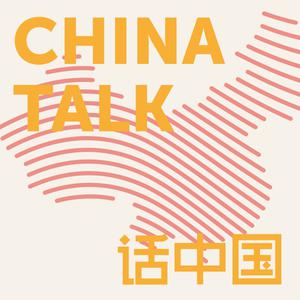 ChinaTalk
ChinaTalk
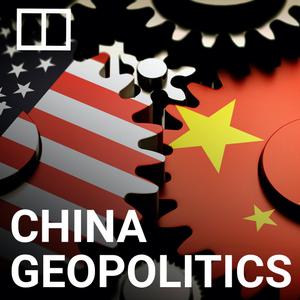 China Geopolitics
China Geopolitics
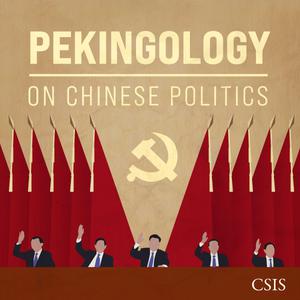 Pekingology
Pekingology
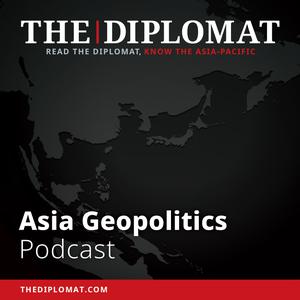 Asia Geopolitics
Asia Geopolitics